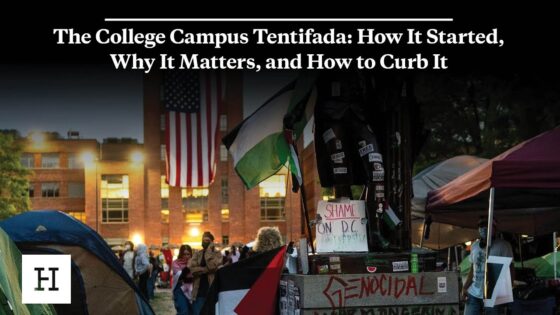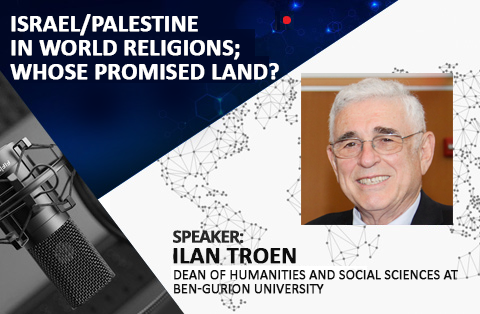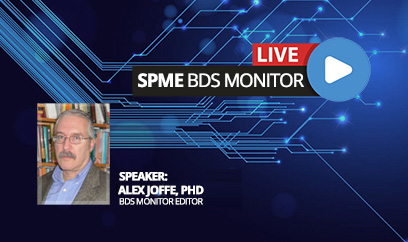CAP Speakers Series
2011 Winter Speakers List
Dr. Yoram Peri, University of Maryland
Feb. 28-Mar. 3, 2011: Toronto, Montreal, Halifax
“2011: Shifting Sands in the Middle East”
Yoram Peri is a former political adviser to late Israeli Prime Minister Yitzhak Rabin and former editor-in-chief of the Israeli daily Davar newspaper, and has been appointed director of the new Joseph and Alma Gildenhorn Institute for Israel Studies <http://www.israelstudies.umd.edu/ > at the University of Maryland as well as chair of the Abraham S. and Jack Kay Chair of Israel studies. In his long career in academia, Peri has focused on Israeli society, politics, military and the media. He most recently served as head of the Chaim Herzog Institute for Media, Politics, and Society at Tel Aviv University, where he was also professor of political sociology and communication. A former senior fellow at the Jaffee Center for Strategic Studies at Tel Aviv University and at the U.S. Institute for Peace in Washington, D.C., Peri has also held visiting appointments at Harvard University, Dartmouth College, American University and the Hebrew University.
· Mon. Feb. 28: 2pm, Rm 108 N, Munk Centre, University of Toronto
· Mon. Feb. 28: 7pm-Seagram Rm, Centre for International Governance Innovation, Waterloo, Ontario
· Tuesday, Mar. 1: 1pm, McGill University, Dept of Political Science, Leacock Bldg 429
· Weds, Mar. 2: 1130am, St. Mary’s University, classroom lecture, department of political science
· Thurs Mar. 3: 1230pm–Dalhousie-seminar, Dalhousie political science, Coburg Board Rm, Mona Campbell Building
Dr. Alan Dowty, University of Notre Dame
March 17-22: Vancouver, Ottawa, Toronto
Topic: “The Fourth Stage of the Arab-Israel Conflict”
Alan Dowty is Professor Emeritus of Political Science at the University of Notre Dame. He has also taught at the Hebrew University of Jerusalem and the University of Calgary, where he was the first holder of the Kahanoff Chair in Israel Studies. He was also President of the Association for Israel Studies, 2005-2007. He has published and lectured widely on the international politics of the Middle East, with particular emphasis on the Arab-Israel conflict, Israeli history and politics, strategic issues, and superpower politics in the region.
· Thurs Mar. 17: 7pm, University of Victoria Department of Political Science, Rm TBD
· Fri Mar 18: 3pm, Liu Centre for International Affairs, UBC, Vancouver
· Monday, Mar. 21: 1230pm, NPSIA, Carleton U-Room TBD
· Monday, Mar. 21: 6pm, GSPIA/CIPS, U Ottawa-Room TBD
· Tuesday, Mar. 22: 2pm, Rm 108N, Munk Centre, University of Toronto
Dr. David Menashri, Tel Aviv University/Oxford University
March 7-10: Western Canada
“Iran: Domestic Challenges and Regional Ramifications”
David Menashri is the Founding-Director of the Center for Iranian Studies, Tel Aviv University, and one of the Israel’s leading scholars on Iran. He is incumbent of the Parviz and Pouran Nazarian Chair for Modern Iranian Studies, Senior Research fellow at the Moshe Dayan Center for Middle Eastern and African Studies and Professor at the Department of Middle Eastern and African History.
Prof. Menashri’s main field of academic research is history and politics of modern Iran, Central Asia, and the Persian Gulf. He is currently visiting professor at Oxford University, and has been a visiting Fulbright scholar at Princeton and Cornell University and, among others, a visiting scholar at the University of Chicago, Melbourne University, the University of Munich and Waseda (Tokyo) and Monash University (Melbourne). In the late 1970s he spent two years conducting research and field studies in Iranian universities on the eve of the Islamic Revolution. He is the recipient of numerous grants and awards in Israel and abroad, including grants from Ford Foundation, Fulbright Foundation and Ben Gurion Foundation.
· Monday Mar. 7: U Calgary, 2pm, Ctr for Military and Strategic Studies, U Calgary
· Monday Mar. 7: U Calgary, 4pm, Israel Studies classroom lecture.
· Tues Mar. 8: U Manitoba, Int’l Relations Open Classroom Lecture-Fletcher Argue Bldg Rm 100
· Tues Mar. 8: U Winnipeg, 6pm, Hosted by President Axworthy, Convocation Hall.
- Weds Mar. 9: 530pm, Edmonton, Canadian International Council-Location TBD
· Thurs Mar. 10: 430pm, Neatby Timlin Theatre, Arts Building, University of Saskatchewan. Hosted by Canadian International Council, reception to follow.
Dr. David Tal, University of Calgary
March 1-2: Northern Ontario
“Understanding the Foundations of Israeli Security Strategy”
David Tal is an Israeli <http://en.wikipedia.org/wiki/Israel > historian, a professor and the Kahanoff Chair in Israeli Studies at the University of Calgary, Canada. He is an expert on Israel’s security and diplomatic history, US disarmament policy, and the history of the Middle East. He is the winner of numerous grants and fellowships, including the Kennedy Library’s Arthur Schlesinger Fellowship. Professor Tal has published several books, including War in Palestine,1948: Strategy and Diplomacy (2004), edited The 1956 War: Collusion and Rivalry in the Middle East (2001 ), and Israel’s Conception of Current Security–Origins and Development 1949-1956 (1998). His articles have appeared in a variety of journals, and he is currently completing a manuscript on the history of nuclear disarmament from 1945 to 1963. Professor Tal received his Ph.D. in History from Tel Aviv University.
· Tues Mar. 1: 7pm, Rm F210, Nipissing University, North Bay, ON. Hosted by Canadian International Council.
· Weds Mar. 2: 7pm: Sudbury, ON-Fraser Auditorium, Laurentian University




